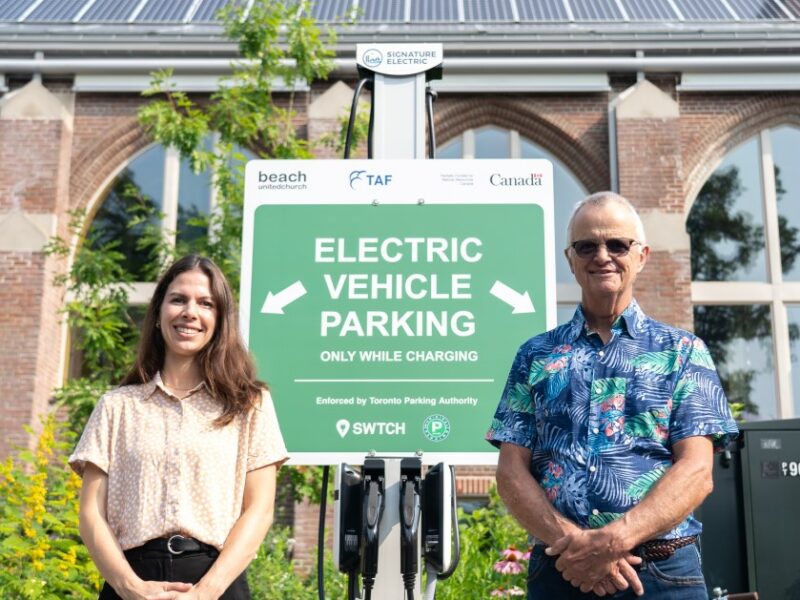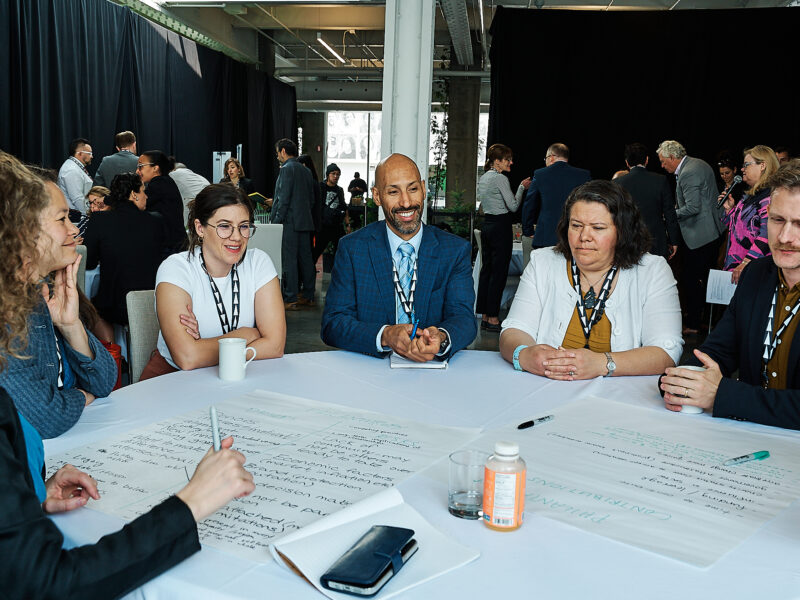December 2023
This year, LC3 launched an equity metric to evaluate how equity is being integrated into the Network’s new grants, programs and direct investments. This blog post highlights our guiding principles, information on the equity metric, examples of local equitable climate action, reflections on urgency and more.
Posts
October 2023
EV home charging offers many benefits, but many multi-family building residents do not have access to it. LC3 Centre The Atmospheric Fund (TAF) is tackling the issue from various angles, including an EV Station Fund in the Greater Toronto and Hamilton Area. Read the full story today.
September 2023
From training on construction techniques to resources on low-carbon building materials, Metro Vancouver Zero Emissions Innovation Centre (ZEIC) and ZEBx are leading the way in the reduction of embodied emissions in Metro Vancouver. This innovative incentive-based program aims at reducing the embodied carbon in new home builds by 40%. Learn more today.
September 26, 2023 – GMF’s Annual Report highlights how we work together as a network, our total grants and investments in 2022-23, local climate and equity initiatives, a case study on an innovative initiative to reduce embodied carbon in building construction and and details on the impacts of LC3 projects and initiatives to date. Learn about our milestones today.
August 2023
HCi3 provided funding to a unique community partnership. This pilot project by O.N.E. Community Economic Development Society and The ReCover Initiative takes aim at two intersecting challenges: a systemic employment gap facing the African Nova Scotian community and the need to quickly scale up deep energy retrofits.
July 2023
At the Montreal Climate Summit, collaboration was on our minds. But what climate solutions might be best suited to the collaborative approach? Here are five.
June 2023
Metro Vancouver’s LC3 Centre, ZEIC, launched an innovative program that aims to reduce the embodied carbon in new home builds by 40%, coinciding with the City of Vancouver’s target to reduce embodied emissions by 40% by 2030. Learn how ZEIC and ZEBx are gathering expertese from collaborators and researchers to reduce embodied carbon emissions in BC.
Montréal, May 9, 2023 – On the occasion of the Montréal 2023 Climate Summit, Low Carbon Cities Canada (LC3) is announcing major support from the McConnell Foundation and the Trottier Family Foundation, two leading Canadian philanthropic foundations, for a total amount of $12 million.







